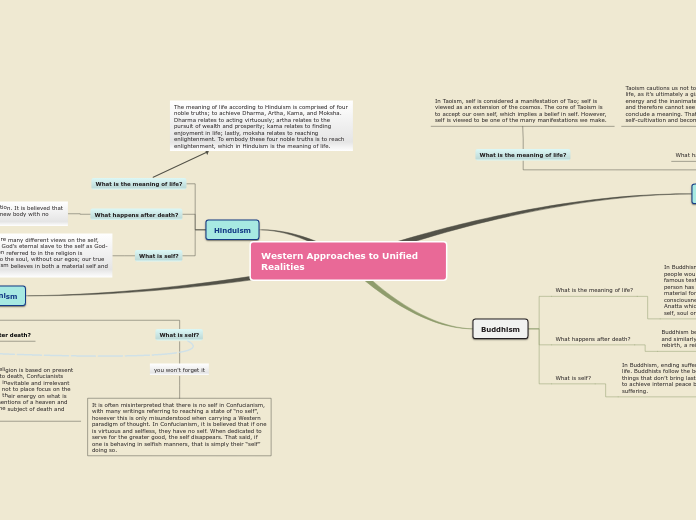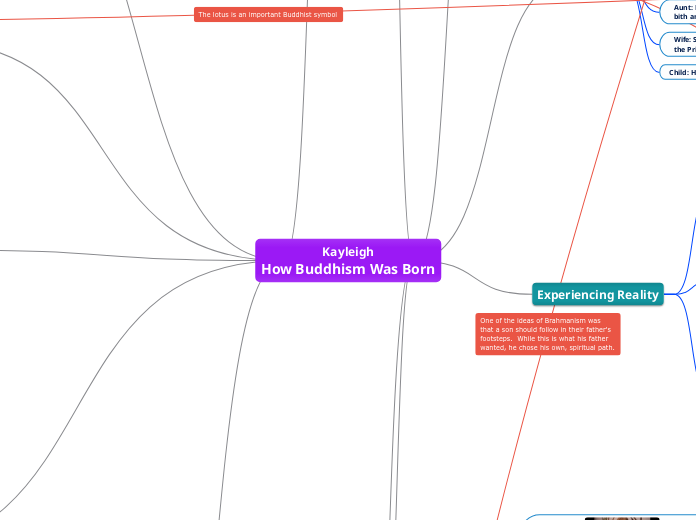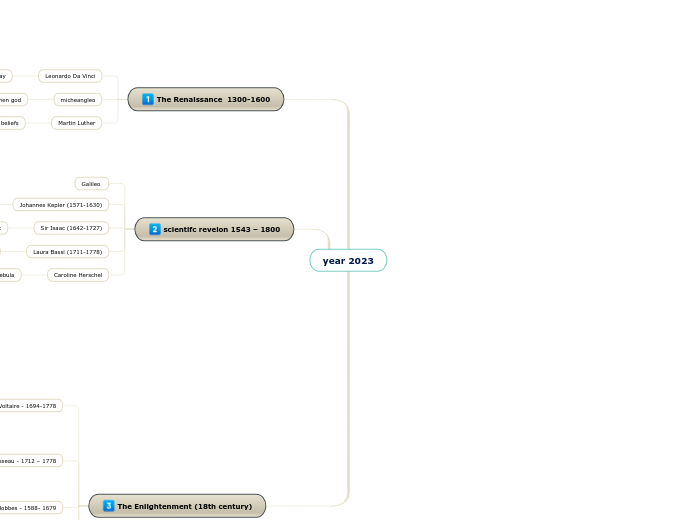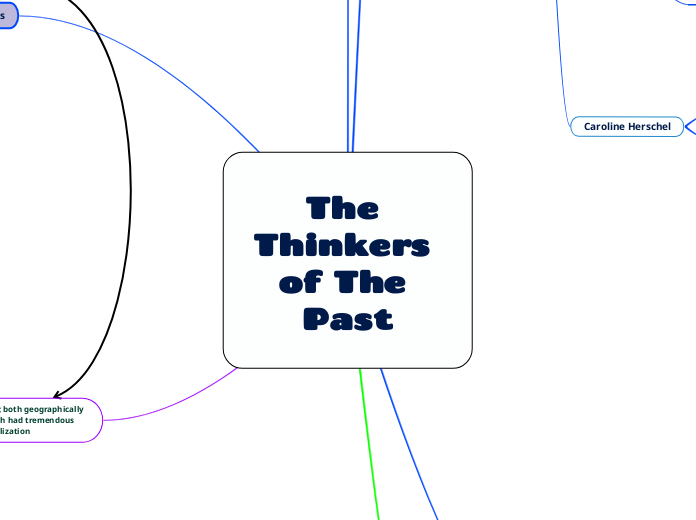Western Approaches to Unified Realities
Confucianism
you won't forget it
It is often misinterpreted that there is no self in Confucianism, with many writings referring to reaching a state of “no self”, however this is only misunderstood when carrying a Western paradigm of thought. In Confucianism, it is believed that if one is virtuous and selfless, they have no self. When dedicated to serve for the greater good, the self disappears. That said, if one is behaving in selfish manners, that is simply their “self” doing so.
In Confucianism, the moral of the religion is based on present moment. That said, when it comes to death, Confucianists understand that the afterlife is both inevitable and irrelevant to our lives in the present. They try not to place focus on the possibilities of afterlife and focus all their energy on what is happening now. There have been mentions of a heaven and sacrifices to a heaven, but overall the subject of death and afterlife is not studies or cared for.
In the eyes of confucianists, the meaning of life is placed in the context of human relationships. The philosophy behind Confucianism connects to the cultivation of virtue in a morally organized world. The meaning of life in this approach is simply to a form deep, whole-hearted relationships with maximum efforts.
Hinduism
Within Hinduism there are many different views on the self, ranging from the self as God's eternal slave to the self as God-identified. However, often referred to in the religion is “Atman”. Atman refers to the soul, without our egos; our true self and essence. Hinduism believes in both a material self and spiritual self.
Hinduism supports the idea of reincarnation. It is believed that the Atman (soul or spirit) is born into a new body with no recollection of their past life.
The meaning of life according to Hinduism is comprised of four noble truths; to achieve Dharma, Artha, Kama, and Moksha. Dharma relates to acting virtuously; artha relates to the pursuit of wealth and prosperity; kama relates to finding enjoyment in life; lastly, moksha relates to reaching enlightenment. To embody these four noble truths is to reach enlightenment, which in Hinduism is the meaning of life.
Buddhism
In Buddhism, ending suffering is the meaning and purpose of life. Buddhists follow the belief system that we often thrive for things that don’t bring lasting happiness; the meaning of life is to achieve internal peace by freeing oneself from all forms of suffering.
Buddhism believes death is a natural part of the circle of life and similarly to a circle, it all comes around; we experience a rebirth, a reincarnation.
In Buddhism, the subject of self is complex, however most people would conclude there is no real self. According to famous texts such as Abhidharmakosha Bhashyach, “Each person has a “dharma-self” composed of five aggregates: material form, feelings, perceptions, mental fabrications, and consciousness” however, Buddha also taught the perception of Anatta which suggests that there is no unchanging, permanent self, soul or essence in phenomena.
Taoism
What is self?
In Taoism, the process of death itself is referred to Shijie, translating to “release from the corpse”. Taoists believe the body carries multiple spirits and monsters who leave the body during Shijie and are no longer protectors of one’s physical form, hence the decaying of dead bodies. It is believed that after death one is ascended to a heaven.
What happens after death?
Taoism cautions us not to place great value on the meaning of life, as it’s ultimately a giant question. Taoism believes in energy and the inanimate but understands we are apart of life and therefore cannot see things from the outer perspective, to conclude a meaning. That said, life is believed to be about self-cultivation and becoming one’s highest self.
What is the meaning of life?
In Taoism, self is considered a manifestation of Tao; self is viewed as an extension of the cosmos. The core of Taoism is to accept our own self, which implies a belief in self. However, self is viewed to be one of the many manifestations we make.









